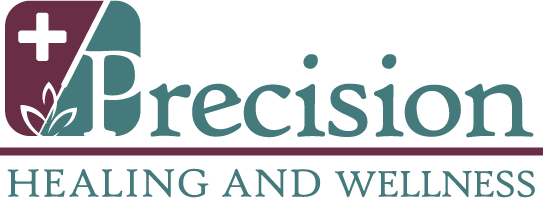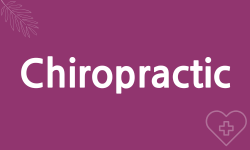The practice of acupuncture dates back centuries, with its origins in China. Despite its age, you can still find an acupuncture clinic in most communities, which is a testament to its establishment. This ancient Chinese medicinal approach stands the test of time because it is both safe and effective.
It is also a medical discipline shrouded in misconceptions. If you are considering acupuncture therapy but feel uncertain because of things you have heard, it is important to know the truth. There are many myths about acupuncture that can misguide you without the proper information.
Exploring the Myths of Acupuncture Clinic Treatments
Myths and misconceptions about acupuncture are widespread and often deeply ingrained in societal belief systems. Understanding the facts behind these myths can help you assess the benefit of acupuncture for you.
1. Acupuncture Is Painful
Pain is often referenced synonymously with acupuncture therapy. The assumption is that, since the treatment uses needles, it must be painful. The truth is that acupuncture is not a painful treatment. Most clinics strive to make it as painless as possible. You may feel small pinpricks when the needles are first placed, but any discomfort you do experience fades rapidly.
For those who are more sensitive and need a more delicate touch, acupuncturists have a variety of sizes of needles. Some are smaller than the standard acupuncture needles, many as fine as a strand of hair, which is ideal for those who need a more gentle treatment method.
2. Acupuncture Treatment Can Interfere With Prescription Medication
Are you hesitant to visit an acupuncture clinic because you take prescription medications? Acupuncture is safe to combine with most treatments, therapies and medications. Your acupuncturist will review your medical history and current treatment programs to ensure that your acupuncture therapy is adapted accordingly whenever necessary.
For example, if you take a blood thinning medication, you may be more likely to bruise or have some slight bleeding from acupuncture. Your acupuncturist will typically opt for smaller needles for your treatment to reduce this risk.
Book Your Appointment
Take the first step on your health and wellness journey by booking your acupuncture appointment today. New customer? During your first visit, you’ll receive a comprehensive consultation, full first treatment, and insurance verification all in one visit.
3. You Only Benefit From Acupuncture After You Have Been Hurt
In Chinese medicine, acupuncture treatment is explained as a means to balance your body’s energy flow, or Qi. Visit your acupuncture clinic as a part of your routine preventative care approach to help maintain your Qi for proper balance and flow. This reduces your risk of illnesses and injuries. Preventative treatment is beneficial because things as simple as not getting enough sleep or eating something with too much fat can interfere with your body’s energy flow.
Acupuncture is beneficial for injuries and illnesses, too. Acupuncture is shown to help with conditions such as back pain, arthritis, asthma, autoimmune diseases and even menstrual cramps. An appointment with an acupuncturist can target any specific discomfort or focus on overall wellness.
4. An Acupuncture Clinic Is Expensive and Not Covered by Insurance
There was a time when acupuncture and other types of alternative medicine were not included in health insurance policies. This left patients to pay out of pocket for these treatments. As services like acupuncture have become more mainstream and more widely accepted, they are also becoming more acceptable to health insurance providers.
Many insurance plans now include coverage for acupuncture treatment. Some states even have laws in place requiring health care providers to cover the service. You may have limitations regarding how much the insurance company will pay or how often you can visit, but your treatment is likely to be covered.
You typically don’t even need a physician’s referral to visit an acupuncturist. Check with your insurance company to confirm, but most acupuncture therapy is considered self-referred, which means you can make the appointment without a referral or prescription from your physician.
Even without health insurance coverage, acupuncture clinic visits aren’t cost-prohibitive. Initial appointments typically cost less than $100, while ongoing treatment may cost as little as $50 per session. Contact us to learn more about our VA insurance coverage.
5. Acupuncture Is Just “Voodoo” and Not Real Medicine
As with any form of alternative medicine that is not widely understood, it is easy to dismiss acupuncture as nothing more than folk medicine and placebos. This perception is widespread about not only acupuncture but chiropractic care and alternative medicine as a whole. The truth is that acupuncture is far more effective and respected than you might think.
The establishment of acupuncture clinic offerings in the United States is backed by centuries of history in Chinese medicine. Acupuncture has also been recognized by the National Institute of Health and the World Health Organization as legitimate and effective. In fact, the Food and Drug Administration approved acupuncture needles for use as medical devices in 1996.
These organizations recognize the legitimacy of acupuncture treatment, and it is steadily gaining ground as a viable supportive treatment option. Clinical research and case studies continue to prove the effectiveness and viability of acupuncture treatment.
6. Acupuncturists Don’t Have Degrees or Formal Training
Have you ever wondered what kind of education is required for practitioners in an acupuncture clinic? You may have heard that acupuncture doesn’t have any formal training or degree requirements. The truth is that acupuncturists complete rigorous training requirements. The minimum requirement for an acupuncturist’s education in the United States is a master’s degree in acupuncture science or Chinese medicine. In fact, there is even a movement toward providing doctorate solutions for acupuncture education as well.
Not only that, but practitioners must pass a challenging series of certification exams to obtain their license to practice acupuncture medicine. The goal is to ensure comprehensive education and expertise in the field, giving you greater confidence in the knowledge and abilities of your licensed acupuncture practitioner.
7. You Can’t Visit an Acupuncture Clinic and Seek Western Medicine
There is a common misconception that you can’t combine acupuncture with traditional modern medicine. Whether the belief stems from concerns that your standard medical practitioner won’t see you if you visit an acupuncturist or vice versa, you may be surprised to find that many modern medicine physicians freely recommend acupuncture as a supportive treatment option. You may find that your physician advises continuing your routine medical care as well, but acupuncture can help enhance the results and balance your body.
In addition, acupuncturists understand the benefit and importance of Western medicine. Your acupuncturist will ask about your current medical care as well as medications that you’re taking not because they are passing judgment but because they use this information to help tailor your treatments appropriately.
Is an Acupuncture Clinic Worth It for You?
When you know the truth behind the common myths about acupuncture, you can see why it’s a beneficial therapy. Whether you consider it for supportive and preventative care or you have an acute situation that could benefit from acupuncture therapy, your local clinic is a great resource. Not only can acupuncturists help you address problem areas, but they can also offer solutions to improve sleep, improve headache symptoms, minimize inflammation and balance your body.
Acupuncture can help reduce symptoms that you may not have even noticed you were having. The individualized approach of acupuncture clinic treatments means that the placement of your acupuncture needles will be unique to you, your energy and your needs. Contact us at Precision Healing & Wellness for more information about how acupuncture can help you.








